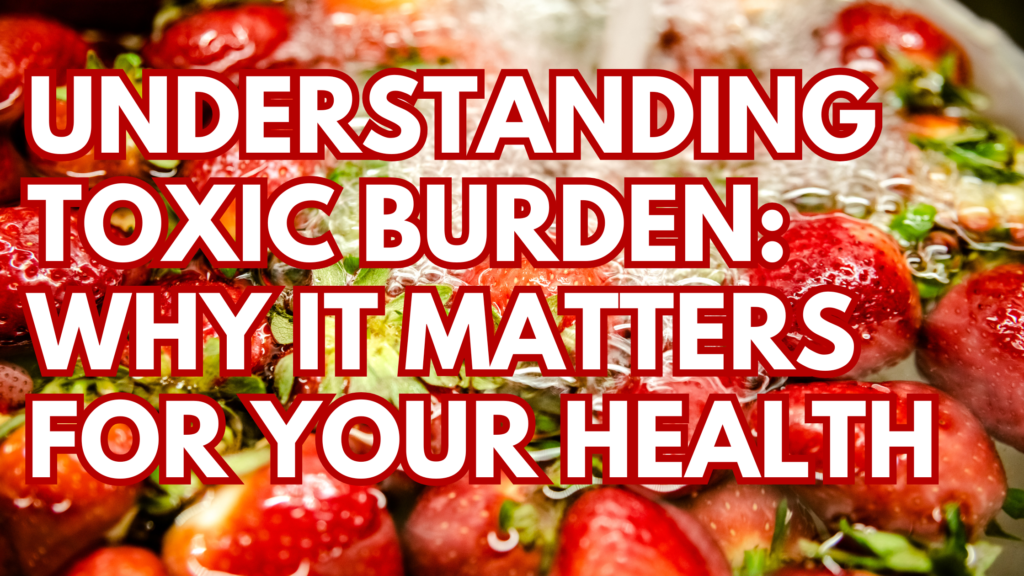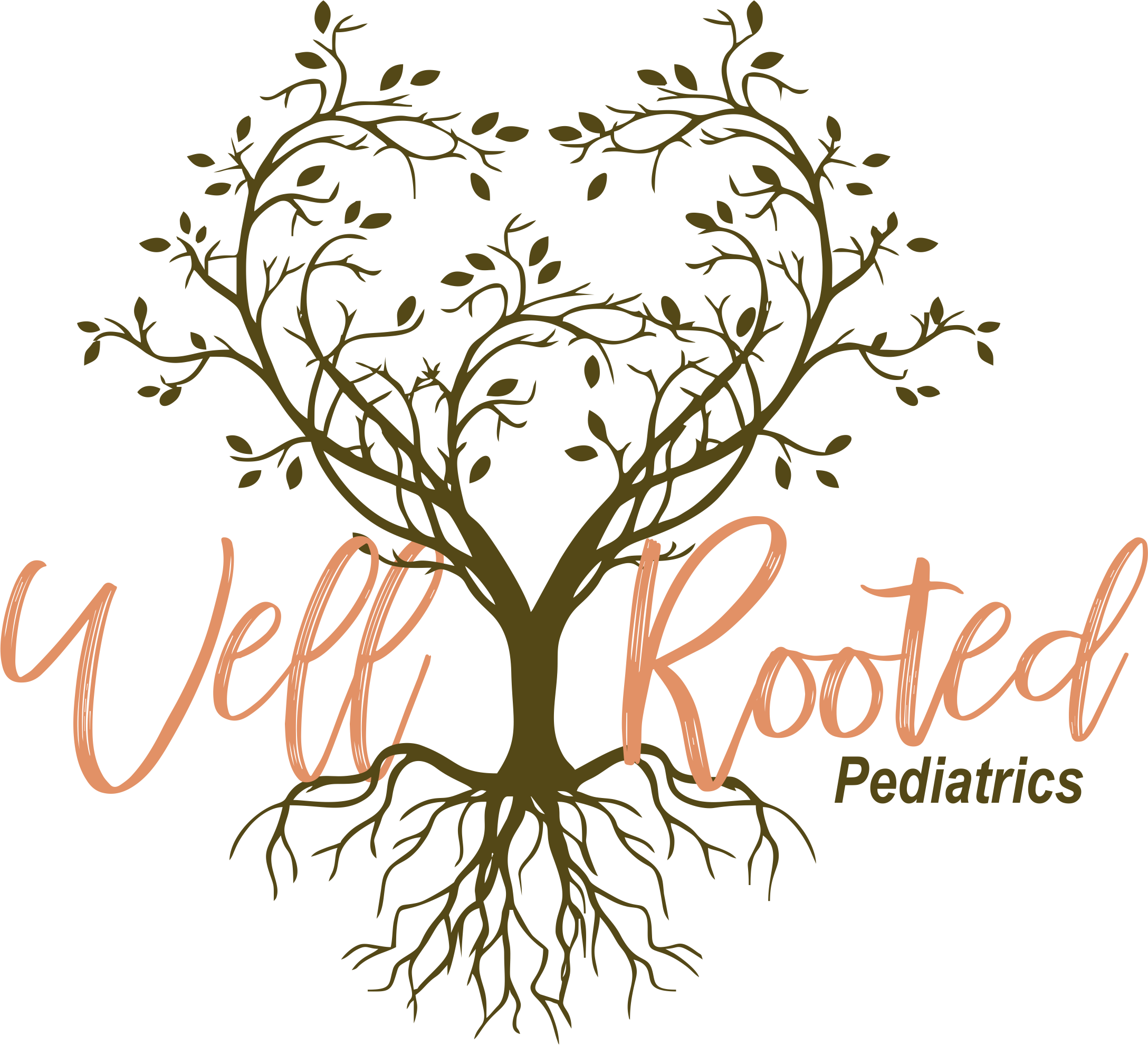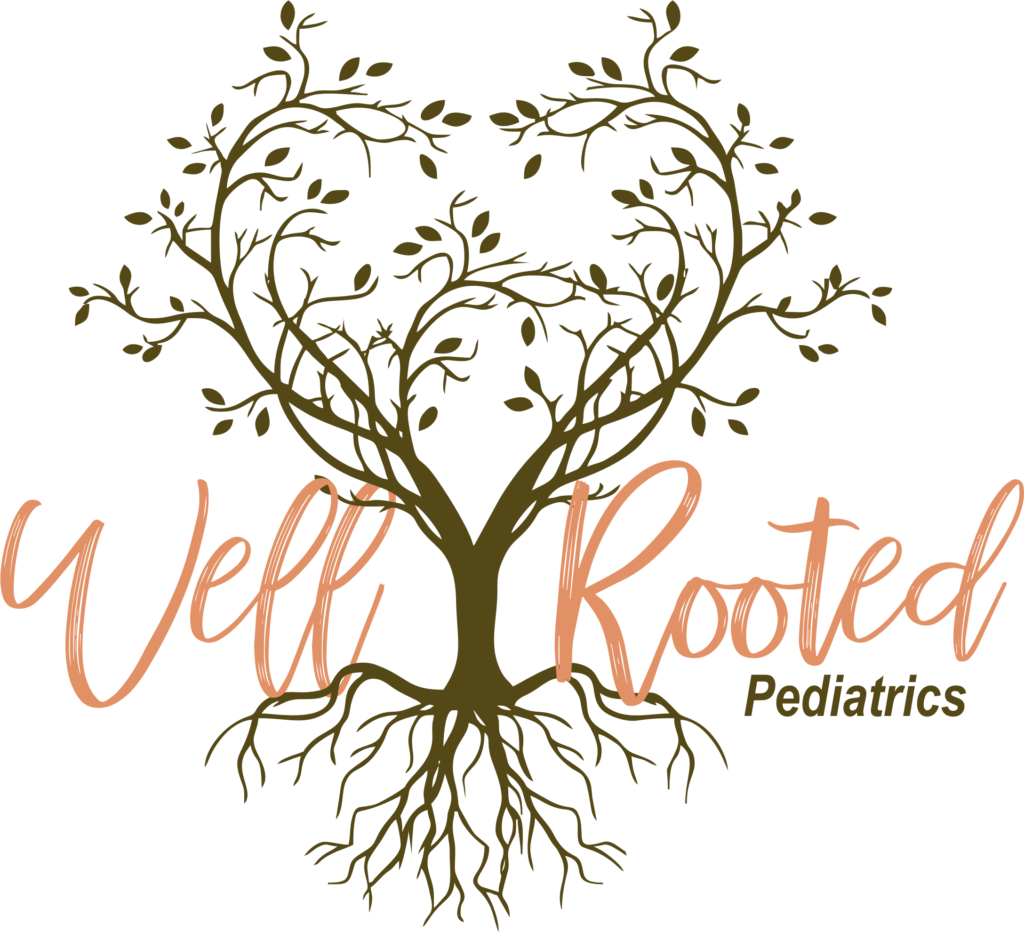Understanding Toxic Burden: Why It Matters for Your Health

Understanding Toxic Burden: Why It Matters for Your Health and How to Lighten the Load
In today’s modern world, it’s easy to forget just how much our bodies are exposed to harmful substances on a daily basis. From the food we eat to the air we breathe, our homes and environments are filled with toxins that can accumulate over time, leading to what’s known as toxic burden. But what exactly is toxic burden, how does it affect our health, and what can we do to support our bodies in managing it? Let’s explore these questions and learn some practical, everyday steps for reducing the toxic load on our families.
What Is Toxic Burden?
Toxic burden refers to the accumulation of harmful substances—like chemicals, heavy metals, pesticides, and pollutants—in our bodies over time. These toxins can come from a variety of sources: the food we eat, the water we drink, the air we breathe, and the products we use on our skin or in our homes. Our bodies are equipped with natural detox pathways, such as the liver, kidneys, skin, and lungs, which work to filter and eliminate toxins. However, in today’s toxic world, these systems can become overwhelmed, leading to a buildup of harmful substances that can negatively impact our health.
How Our Modern World Contributes to Toxicity
We live in an age where convenience is king, but the products and environments that make life easier often come with hidden dangers. Here are some common sources of toxins in our daily lives:
– Pesticides in food: Conventional farming practices often rely on pesticides that leave residues on fruits and vegetables. These chemicals can disrupt hormones and contribute to various health issues.
– Chemicals in personal care products: From shampoos to makeup, many personal care items contain ingredients like parabens, phthalates, and synthetic fragrances, which can interfere with hormone balance and overall well-being.
– Household cleaning products: Many conventional cleaners contain harsh chemicals, such as volatile organic compounds (VOCs), that can pollute indoor air and contribute to respiratory problems.
– Plastic and non-stick cookware: Plastics can leach harmful chemicals like BPA into our food and water, while non-stick cookware can release toxic fumes when heated.
– Environmental pollutants: Air pollution, water contamination, and exposure to industrial chemicals all contribute to the toxic burden our bodies must manage.
How Toxins Impact Our Health
When our detox pathways become overwhelmed, the buildup of toxins in our bodies can lead to a variety of health problems. Chronic exposure to toxins has been linked to issues such as:
– Hormonal imbalances: Endocrine disruptors, found in everything from plastics to pesticides, can interfere with the body’s natural hormone production, affecting everything from growth to reproductive health.
– Weakened immune function: An overburden of toxins can impair the immune system, making it harder for the body to fight off infections and illnesses.
– Chronic inflammation: Many toxins trigger low-grade inflammation in the body, which, over time, can contribute to conditions like heart disease, autoimmune disorders, and even cancer.
– Neurological issues: Exposure to heavy metals, such as lead and mercury, has been linked to cognitive decline, behavioral problems in children, and other neurological issues.
– Digestive problems: Toxins can disrupt the balance of good and bad bacteria in the gut, leading to issues like bloating, constipation, and leaky gut syndrome.
Supporting Your Body’s Natural Detox Pathways
While we can’t completely avoid toxins in our modern world, we can take steps to support our bodies’ natural detox processes and reduce the toxic burden we carry. Here are some realistic and affordable tips to help you and your family reduce exposure to harmful substances:
1. Choose Organic Produce: Whenever possible, opt for organic fruits and vegetables to reduce pesticide exposure. The Environmental Working Group (EWG) releases a yearly “Dirty Dozen” list of produce with the highest pesticide residues—prioritize buying these organic when possible.
2. Switch to Safer Cookware: Replace non-stick cookware with stainless steel, cast iron, or ceramic alternatives. These materials are less likely to leach harmful chemicals into your food.
3. Ditch Plastic: Use glass or stainless steel containers for food storage and reusable water bottles. Avoid heating food in plastic containers, which can release chemicals like BPA.
4. Upgrade Your Cleaning Products: Opt for non-toxic, natural cleaning products, or make your own using simple ingredients like vinegar and baking soda. These options are gentler on your home’s air quality and your family’s health.
5. Non-Toxic Personal Care: Choose personal care products that are free from harmful chemicals like parabens, phthalates, and synthetic fragrances. Brands that prioritize natural, safe ingredients can help you reduce your exposure to toxins.
6. Stay Hydrated: Drinking plenty of clean, filtered water helps flush toxins out of your body. Aim for a high-quality water filter to remove contaminants like chlorine, lead, and other pollutants from your tap water.
7. Get Plenty of Sleep: Your body does much of its detoxifying work while you sleep, so make sure you’re getting enough rest each night to support this essential process.
8. Support Your Liver: Your liver is a key organ for detoxification. Support it with nutrient-dense foods like leafy greens, beets, garlic, and turmeric, and avoid overloading it with alcohol or processed foods.
Why Detox Support Is Essential for Everyone
Detoxifying isn’t just for those with specific health concerns. In today’s world, everyone needs to support their body’s detox pathways to stay healthy and reduce the risk of chronic illness. Functional medicine emphasizes getting to the root cause of health issues, and often, toxins are a hidden root that many people overlook. By supporting detox, you’re setting yourself up for better long-term health and giving your body the tools it needs to thrive.
By making small, mindful changes in our everyday lives, we can reduce toxic load and create a healthier environment for ourselves and our families. Detoxify your life one step at a time and join us in the journey toward better health. 🌿
OUR LOCATIONS
Crystal Lake, IL
390 Congress Parkway Suite J, Crystal Lake, IL
Oak Brook, IL
814 Commerce Drive Ste 150 Oak Brook, IL 60523
HOURS OF OPERATION
Crystal Lake, IL
| Monday | 9am to 5pm |
| Tuesday | 9am to 5pm |
| Wednesday | 9am to 5pm |
| Thursday | 9am to 5pm |
| Friday | 9am to 5pm |
| Saturday | 1st, 2nd & 3rd Saturday Of The Month |
Oak Brook, IL
| Monday | 9am to 5pm |
| Tuesday | 9am to 5pm |
| Wednesday | 9am to 5pm |
| Thursday | 9am to 5pm |
| Friday | 9am to 5pm |
| Saturday | Closed |
Crystal Lake Office
390 Congress Parkway Suite J
Crystal Lake, IL
Phone 815-322-9300
Fax 815-322-9315
Email [email protected]
Oak Brook Office
814 Commerce Drive Ste 150
Oak Brook, IL 60523
Phone 815-322-9300
Fax 815-322-9315
Email [email protected]
Office Hours
Monday: 9am to 5pm
Tuesday: 9am to 5pm
Wednesday: 9am to 5pm
Thursday: 9am to 5pm
Friday: 9am to 5pm
Saturday: Varies By Location

